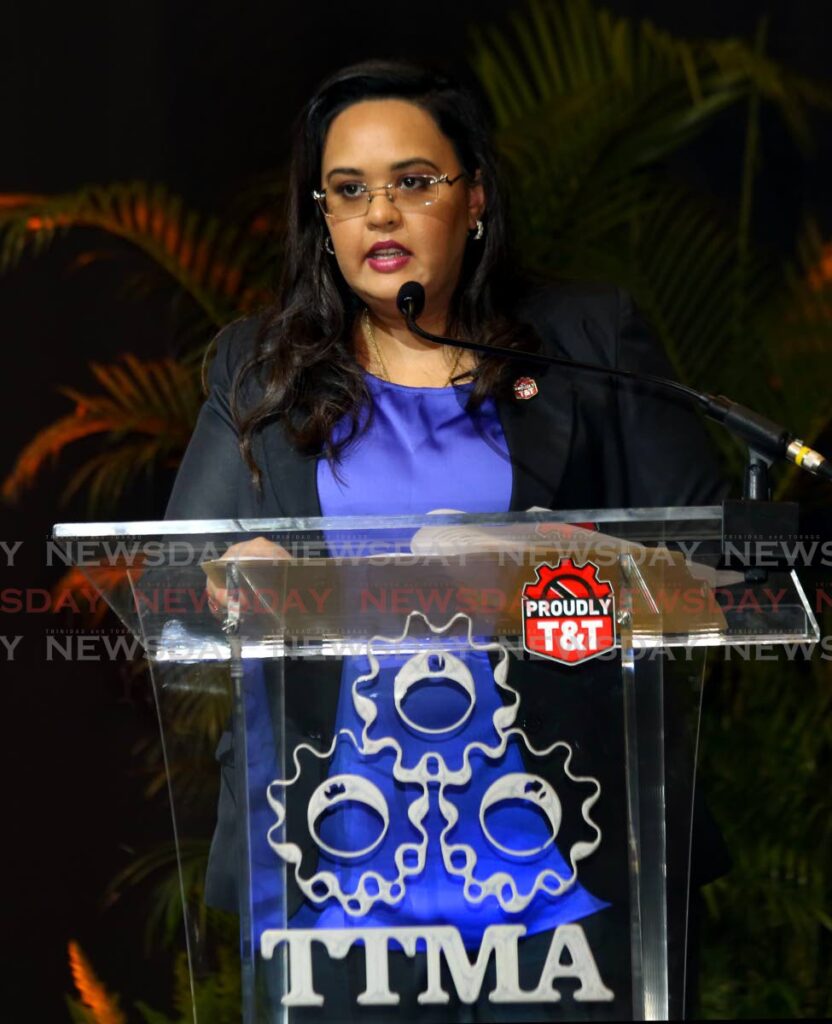Manufacturers Association worries about crime in special economic zones

The Trinidad and Tobago Manufacturers Association (TTMA) has commended the Government for new legislation put in place to govern special economic zones (SEZ), but expressed concern that if the legislation is not enforced the zones could be a safe haven for criminal activity.
“We are extremely pleased that the Government has included special clauses to ensure transparency and ultimately decrease the amount of illegal goods entering the country,” said TTMA president Tricia Coosal in a release Tuesday. “However, we are also mindful that enforcement of the law is not always carried through, and we want to ensure that persons are held accountable for their actions when they are in breach of the existing laws and regulations.”
Coosal said some of the new clauses including the creation of a Special Economic Zone Authority, staggered appointments by those on the SEZ Authority board, and a declaration by each board member of any interest in an operator or enterprise regulated by the authority were welcome, especially since there were no special provisions to monitor those conditions in the previous bill.
Planning and Development Minister Camille Robinson-Regis said in a statement in January that a chairman and three members will be appointed to the board for a term of four years, a deputy chairman and two members will be appointed for a three-year term, and three members will be appointed for a two-year term. None of the appointments will expire on the same date.
Appointments to the board after the tenure of the board’s first appointment will not exceed four years and the appointments will not exceed eight years consecutively, or in aggregate, for each member.
The requirement for every member of the board to submit declarations stating whether they have any interests in any operator is enforced in Clause 10(4) which regards the failure of submitting a declaration as an offence punishable by a fine of $500,000, and imprisonment for five years, or a fine of $1 million and imprisonment for 10 years.
But Coosal noted that on the ground level Customs and Excise officers and the police will have to make a concerted effort to look out for illicit trade in these zones.
“Some of the most illegally traded items in the world are tobacco, alcohol, luxury items such as clothes, handbags, sneakers and shoes, pharmaceuticals, electronics and exotic animals. These items need special levels of attention and enforcement so that criminals recognize there are consequences for their actions,” the release said.
Special economic zones are areas used by governments to diversify exports, generate foreign exchange, create jobs, plot new policies and approaches and allow more efficient government supervision of infrastructural development, environmental controls and labour standards.
The bill, passed in January, provides for the designation, development, operation and management of SEZs and repeals the Free Zone Act Chapter 81:07. Businesses that receive SEZ operator’s licences will be subject to regulations which comply with global tax standards used by foreign direct investors.


Comments
"Manufacturers Association worries about crime in special economic zones"